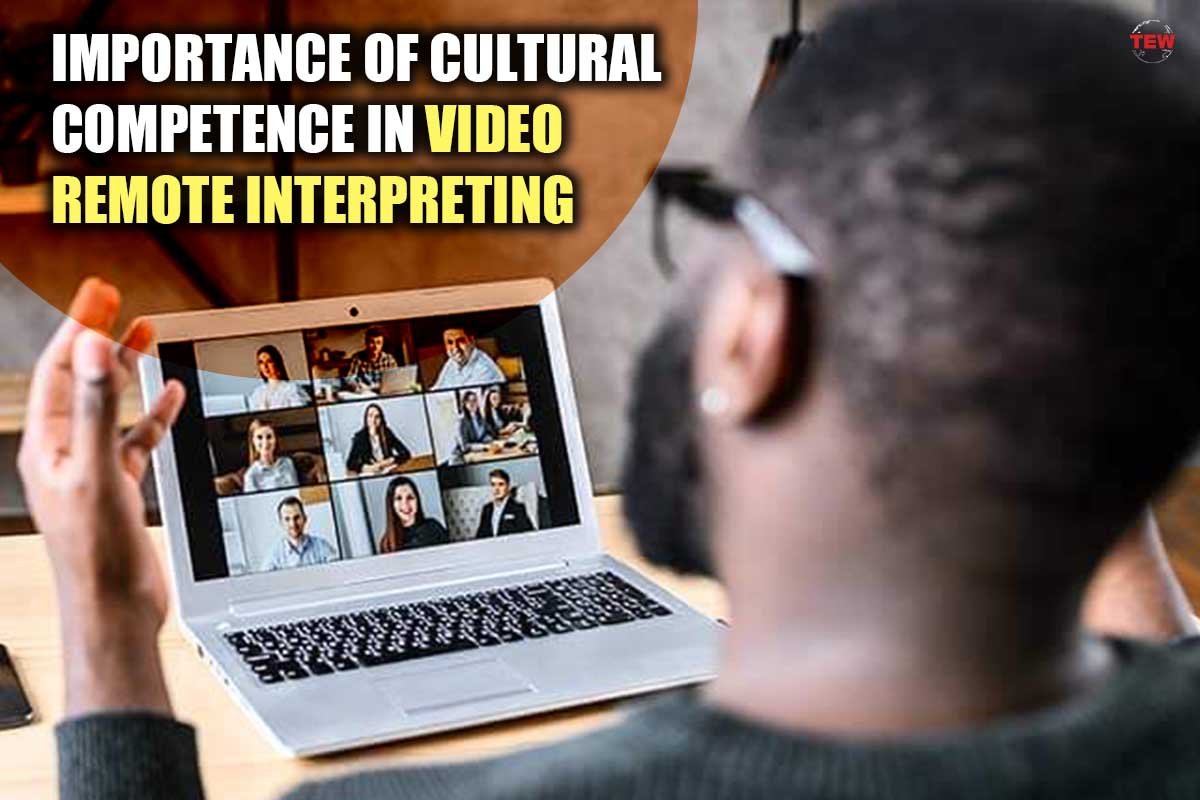VRI technology has revolutionized the interpretation industry, making it easier than ever for professionals to provide language services worldwide remotely. However, due to its digital nature and lack of physical presence, conveying cultural nuances or building trust with clients can take time and effort.
Understanding cultural competence is vital to providing effective and high-quality VRI interpretation. Cultural competence involves understanding the language, customs, norms, values, beliefs, behaviors, and other characteristics of the target group.
It is essential for remote video interpreters because it gives them a better understanding of the persons they are communicating with to provide more tailored interpretations that consider the cultural context.
Without cultural competence, interpreters may not be able to relay information accurately or navigate complex topics without inadvertently offending someone.
Cultural Competence: What You Need To Know
Have you been asked to provide Interpretation services for a group of people with different cultural backgrounds? Here are some tips on how to become culturally competent:
- Take the time to learn about different cultures and understand their nuances. This includes reading up on their history, customs, values, etiquette, and other aspects of their culture.
- Respect the beliefs and opinions that each individual holds. Make an effort to be open-minded and tolerant – even if you don’t agree with something.
- When working with individuals from different cultural backgrounds, you must be aware of any potential biases or preconceived notions you may hold about them and not allow these biases to influence your interpretation.
- Ask questions. Get to know the person you are interpreting for and learn more about their culture to better communicate with them.
- Lastly, practice active listening and pay attention to body language, as this can often give insight into a cultural context which will improve your interpretation.

Cultural competence is an essential skill that all interpreters need to provide effective Video Remote Interpreting services. By taking the time to understand different cultures and adapting your approach, you can ensure that your interpretations are accurate and respectful to everyone involved.
Cultural competence helps VRI interpreters remain sensitive to any potential barriers that could arise during their remote sessions.
A lack of cultural understanding can lead to misunderstandings, incorrect translations, and miscommunications which can all negatively impact a client’s experience with the interpreter.
The Benefits Of Cultural Competence In Interpreting ;
With a high level of cultural competence, interpreters are better equipped to provide practical interpretation. For example, they can show sensitivity when discussing delicate topics such as race or religion and demonstrate respect for different ways of life.
Cultural competence also allows interpreters to make appropriate decisions about complex scenarios and choose words that best reflect the source language.
This helps ensure accuracy and prevents misunderstandings from occurring. In addition, it reduces potential bias in interpretations and builds trust with clients.
Overall, understanding cultural competence is essential for providing effective VRI interpretation services. It ensures that interpreters can accurately convey messages while respecting and preserving the target group’s culture.

Significant components need to be considered when it comes to cultural competence. These components include:
- Understanding the language, customs, norms, values, and beliefs of the target group
- Being aware of any potential biases or preconceived notions
- Respecting each individual’s opinion and beliefs
- Asking questions and actively listening
- Being open-minded and tolerant
1. How VRI Services Can Improve Your Cultural Competence And Boost Business
As technology takes over the interpreting industry, VRI services have become increasingly popular. Utilizing remote video interpreting can help you improve your cultural competence while boosting your business at the same time.
For starters, VRI allows interpreters to work with people from all over the world. This means they are exposed to different cultures and languages daily, which helps them become more culturally competent.
VRI also provides interpreters with an opportunity to practice their skills in real-time scenarios, which is invaluable when it comes to building confidence and improving their accuracy.
Finally, by offering quality interpretation services through VRI, interpreters can attract new clients and grow their businesses quickly. It’s an excellent way for businesses to stay competitive and increase their revenue.
2. How Interpreters Can Develop Their Cultural Competence
Cultural competence takes time and effort to develop. While some interpreters may have a natural knack for understanding different cultures, everyone can benefit from the intentional practice.
Here are a few ways interpreters can increase their cultural competence:
- Read books or articles about the target culture.
- Listen to podcasts that discuss topics related to the target culture.
- Watch movies or documentaries in the target language.
- Participate in language exchange programs with native speakers of the target language.
- Travel to countries where the target language is spoken and experience their customs firsthand.

Final Words
Cultural competence is essential for all interpreters who work with remote video interpreting services. It allows them to convey messages accurately while respecting and preserving their clients’ cultures.
VRI services help interpreters become more culturally competent by exposing them to different cultures and providing real-time practice scenarios. Interpreters can develop cultural competence through reading, listening, watching, participating in language exchanges, and traveling.
These activities are invaluable in helping interpreters be effective communicators between cultures.
By increasing their cultural competence, interpreters can provide better interpretation services, leading to improved client satisfaction, increased business opportunities, and a healthier overall economy. Ultimately, cultural competence is essential for maintaining high-quality interpretation standards in the industry.




